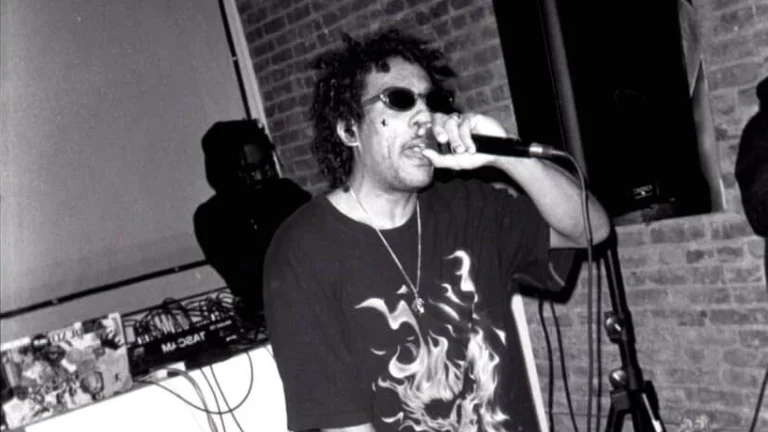Originating in Spanish and Latin American folklore, “duende” was expounded by 20th-century writer Federico García Lorca in his seminal essay “Theory and Play of the Duende” to describe the innate passion and pain that can overcome us when making art. Derived from the Spanish phrase “duen de casa”—“master of the house,”—this transcendental creative force is said to awaken the subconscious, the so-called master of the bodily house. The term would later inspire the moniker of Queens-born musician duendita, whose ambient tracks sit at various points between R&B’s soulful groove and the darker melancholy of trip-hop. On her latest heartfelt record, a strong desire to survive, duendita digs deep, harnessing her own duende in a remarkable display of honesty and grace.
a strong desire to survive opens with the shrill blare of a siren on “why i didn’t report” which soon warps into a softer acoustic guitar melody. Still, in conjunction with the title and stark lyrics recalling “fighting” and feeling “voiceless,” it casts a haunting shadow over the rest of the album by tacitly confronting listeners with the frightening realities of sexual violence. Right from the offset, duendita is confident in her vulnerability, and it becomes clear this project is not only about wanting to overcome adversity but being wholly intent on doing so.
This determination is most discernible in “htp (healing the pain)”: incorporating a faster tempo and encouraging lyrics like “your body is unique and beautiful and most of all, it’s yours.” The track bubbles over with an exhilarating mix of elation and relief at realizing healing is “a wonderful thing, which is especially heartening after the initial sonic bleakness of “why i didn’t report” and the plaintive lyricism of “mind,” where she muses, “try to escape the sky / feel blue but don’t know why,” positioned earlier in the album, charting her subsequent journey towards recovery. The immensity of such a journey is conveyed through her sonorous vocal tones—duendita doesn’t just sing, she feels. Across the album, she unravels every consonant, savoring every vowel in a wittingly unhurried but utterly transfixing way as she weaves a vivid tapestry of personal experiences: healing is a wonderful thing but it can also be arduous, and it is this hardship that makes it so rewarding.
An adept storyteller, duendita plays with light and shade throughout the record. There is a palpable heaviness to “die not,” where distorted vocals and fuzzy instrumentals create a sense of disorientation; at the other end of the spectrum, “break the silence” embraces more uplifting beats, reflecting the tenacity of its title. Lead single “baby teeth” embodies this variance—dynamic vocals are guided by a gently meandering piano, soothing enough to be the backing track for a lullaby. Perhaps this is duendita’s way of subtly reclaiming her childhood innocence, as candid lyrics allude to dark experiences when she was “just a girl.” Online, women often use this phrase ironically to evade accountability for their actions or lack of action; duendita puts a more earnest spin on it, as her girlhood becomes a reason to take responsibility for growth in honor of her younger self. Floating between delicate highs and rich lows, her expansive vocal range deftly captures the pendulum of healing: swinging between mourning what has been lost and hopefulness for what’s to come. To close the track, she is accompanied by a choir of dulcet voices, a fierce collective spirit with, no doubt, a strong desire to survive.
Singing alone demands a different kind of fierceness—duendita opens the album by herself with the affronting line “we’ve been voiceless for too long,” and dares to make this statement on behalf of a much larger sexual violence survivors group who are forced into silence. Thus, she enriches the current music landscape with her authentic lyricism and meticulously layered instrumentals as well as the cultural landscape where we are frequently suppressed by shame, fear, and anxiety. By the end of a strong desire to survive, her smooth, stirring voice is irrefutably reclaimed. The rapturous applause opening the final track, “all mine – june 11, 2019,” affirms duendita has forged a community from the isolating effects of trauma, culminating in a cheering room rooting for her survival.





